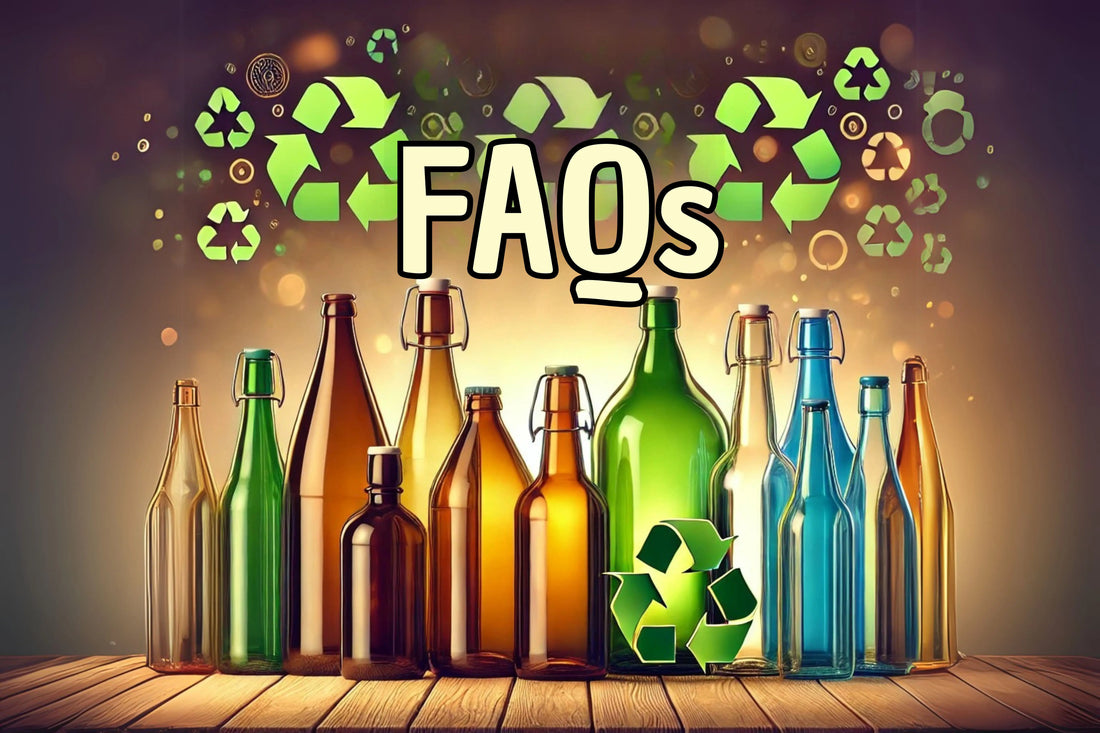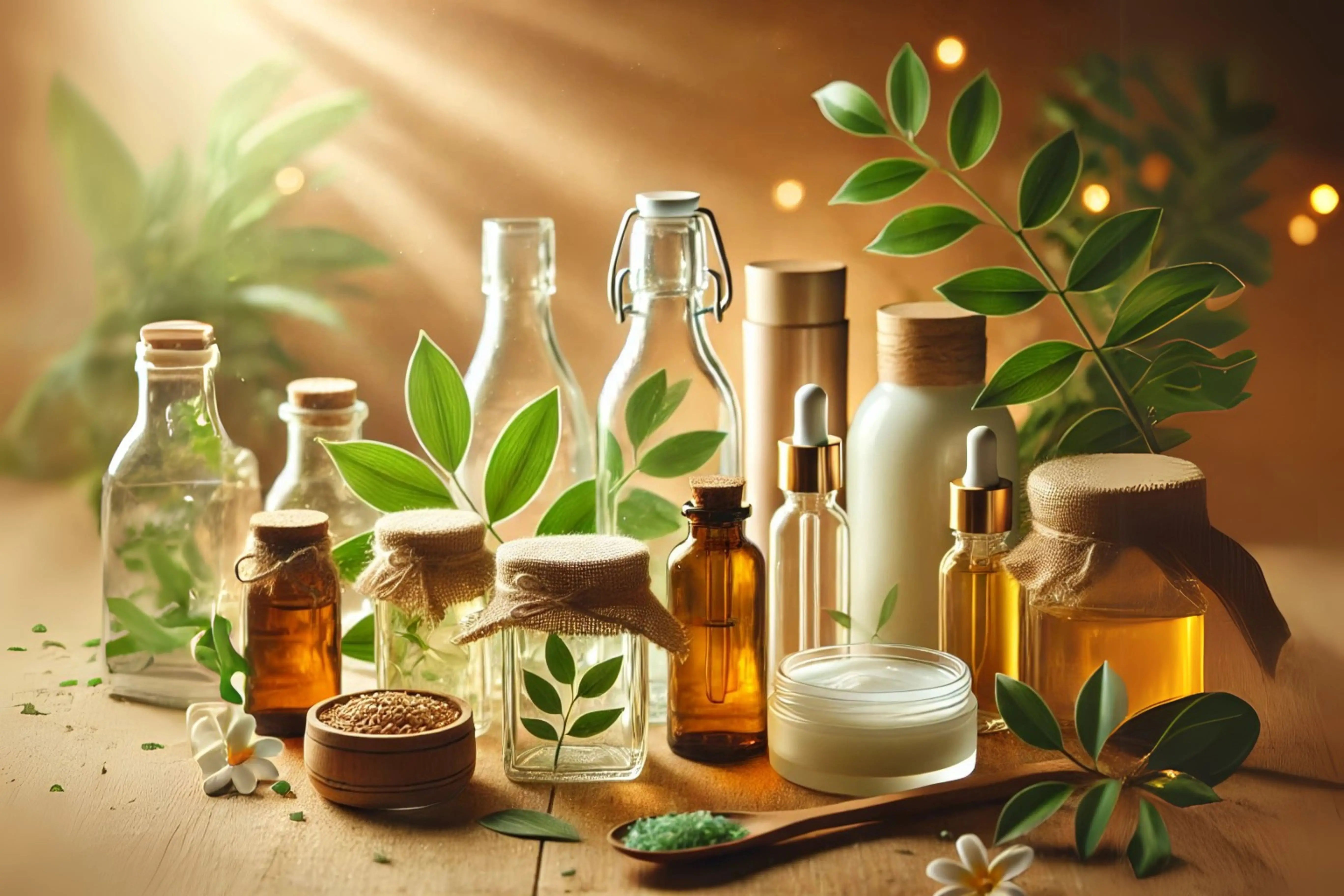Glass bottle packaging is a preferred choice for many industries - food and beverage, cosmetics, and pharmaceuticals. Its durability, eco-friendliness, and ability to preserve product quality make it an excellent option compared to plastic packaging. In this guide, we answer 15 of the most common questions about glass bottle packaging to help businesses make informed decisions.
1. What Is the Best Way to Package Glass Bottles?
The best packaging method depends on the product and industry. These bottles should be secured with protective materials like molded pulp, foam inserts, or corrugated dividers to prevent breakage. For food products, airtight glass container options such as hot sauce bottles or wine bottles help preserve freshness. High-speed systems are used in commercial packaging to improve efficiency and reduce shipping costs.
2. What Are the Limitations of Glass Packaging?
While glass is an ideal material for packaging, it has some drawbacks, including its weight, fragility, and higher energy consumption during manufacturing. Heavier bottles increase transportation costs, and exposure to light can affect certain products like white wines. However, colored glass bottles can help protect against light exposure.
3. What Is the Purpose of Glass Bottle Packaging?
Glass bottle packaging serves multiple purposes, including product preservation, aesthetic appeal, and sustainability. It is widely used in industries requiring chemical stability, such as pharmaceuticals, beverages, and cosmetics. The taste of soda, for example, is better preserved in carbonation in glass bottles compared to plastic counterparts.
4. How Can Glass Bottles Be Packed Safely for Transport?
To prevent breakage, these bottles should be cushioned with foam inserts, air pillows, or molded pulp trays. Custom bottles, such as high-quality glass sauce bottles, often come with added protective layers. Businesses can use cost-effective, customizable solutions to enhance packaging security.
5. Is Glass Packaging More Sustainable?
Yes, glass is a friendly packaging option due to its recyclability and long lifecycle. Unlike plastic containers, these bottles can be recycled indefinitely without degrading in quality. Recycling glass reduces reliance on fossil fuels and lowers environmental implications associated with plastic waste.
6. What Are the Common Uses of Glass Bottles in Packaging?
These bottles are used in an array of applications that include food and beverage packaging, personal care products, and pharmaceuticals. Hot sauce containers, condiments bottles, and wine bottles are popular examples. Different bottle shapes and glass bottle designs cater to specific industries.
Learn more about the different types of glass bottles and their uses.
7. Is Glass Packaging More Expensive Than Plastic?
Glass packaging generally costs more due to the manufacturing process, shipping costs, and heavier weight. However, economies of scale in large production runs can reduce costs. Businesses with cost considerations may choose lightweight bottles to balance affordability and quality.
8. What Are the Main Challenges in Packaging?
The three biggest challenges in packaging include sustainability, cost-effectiveness, and product protection. Glass bottle packaging addresses these challenges by providing chemical stability, recyclability, and premium branding options.
9. Why Are Glass Packaging Preferred Over Plastic?
These bottles offer superior chemical stability, do not leach harmful substances, and are made from eco-friendly materials like soda ash and sand, unlike plastic bottles. They also maintain the freshness and quality of food and beverages better than plastic packaging.
Learn more: Are Glass Bottles Better Than Plastic? A Comprehensive Comparison
10. What Natural Resources Are Needed to Make Glass?
The primary natural materials used in the manufacture of glass include soda ash, sand, and limestone. Some manufacturers incorporate recycled materials to reduce reliance on virgin raw materials.
Learn more about how glass bottles are made.
11. How High Is the Demand for Glass Packaging?
The current market for glass packaging is growing because of the increasing environmental concerns and the demand for sustainable solutions. Annual trade in the wine industry and premium food packaging sectors continues to drive market presence for glass bottle packaging.
Learn why more brands are switching to glass bottles in 2025.
12. How Are Glass Bottles Transported Safely?
These bottles are shipped using specialized packaging materials, such as five-gallon pails for bulk storage or individual carton dividers for smaller shipments. Businesses use effective solutions like high-speed system packaging to streamline logistics.
Read more: How to ship glass bottles of liquid?
13. Does Milk Stay Fresh Longer in Glass Packaging?
Yes, milk lasts longer in glass than in plastic bottles because glass materials offer better insulation, keeping the milk cooler for extended periods. Unlike plastic packaging, glass does not absorb odors or chemicals, maintaining the milk’s natural taste.
14. What Are the Advantages and Disadvantages of Glass Packaging?
Pros:
- Eco-friendly and recyclable through curbside recycling programs.
- Preserves the flavor and freshness of food products.
- Enhances aesthetic appeal and branding options.
- Resistant to chemical leaching and contamination.
Cons:
- Heavier bottles increase shipping costs.
- More fragile than plastic packaging.
- Higher energy consumption in the recycling process.
15. How Are Glass Bottles Sealed for Packaging?
Sealing methods depend on the type of packaging. Bottles used for beverages are often sealed with metal caps, while glass jars use screw-top lids. Custom bottle decorating and labeling enhance branding options.
Conclusion
Glass bottle packaging remains an excellent option for businesses looking for sustainability, premium quality, and effective packaging solutions. While it comes with higher costs and fragility, its benefits in preserving product integrity and reducing environmental impact outweigh the drawbacks.
For high-quality glass bottle packaging solutions, browse the wide range of options available at The Bottle Depot today




